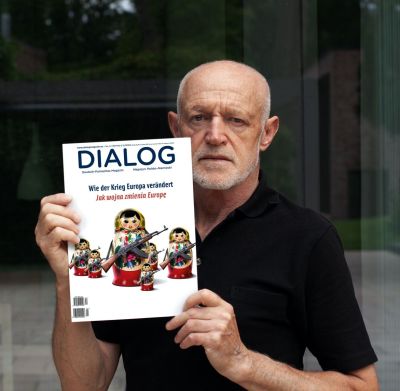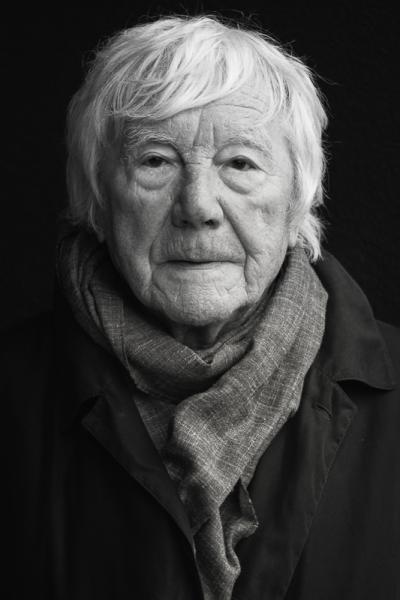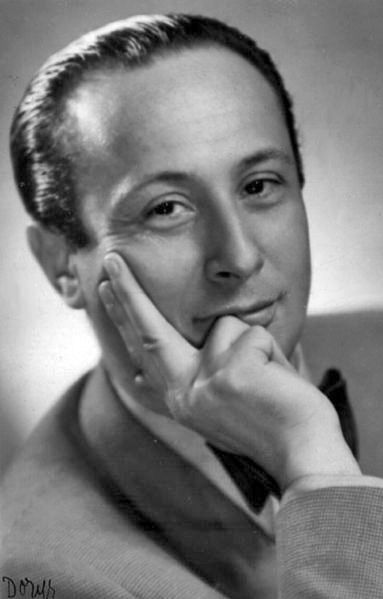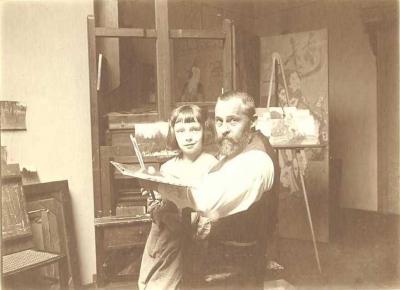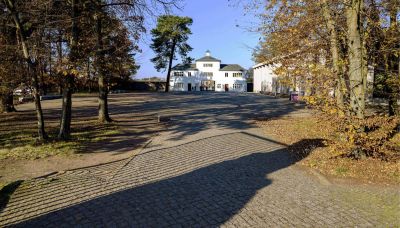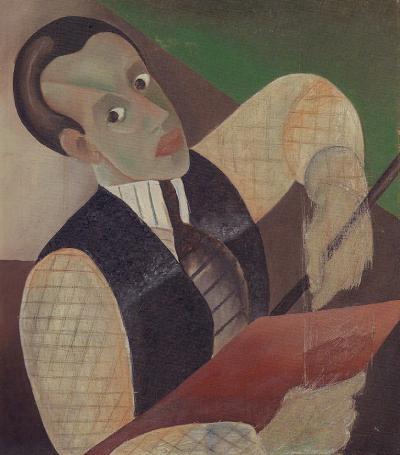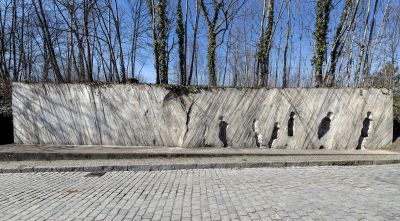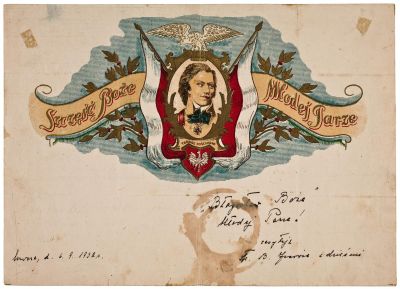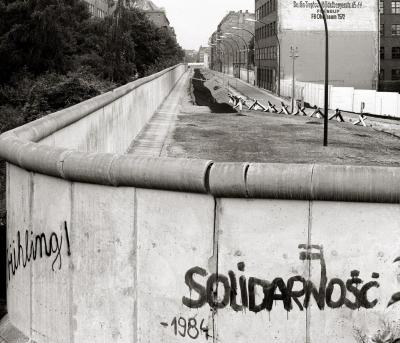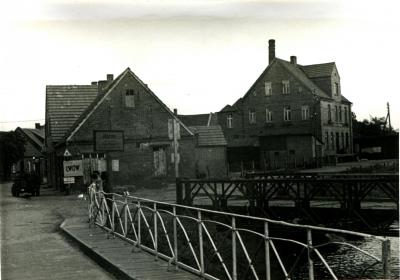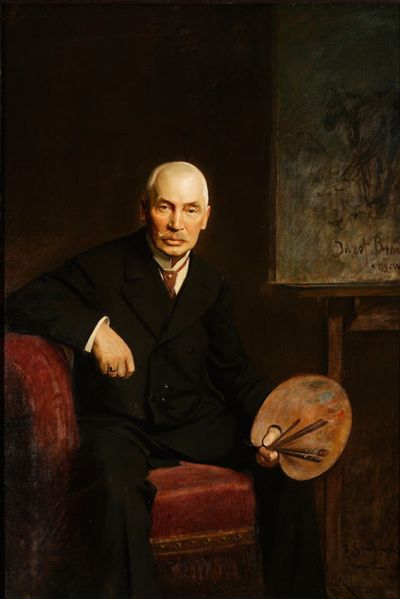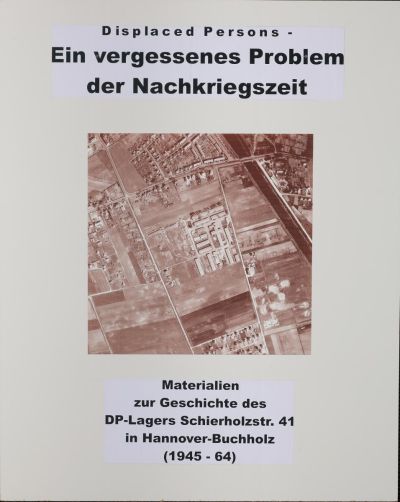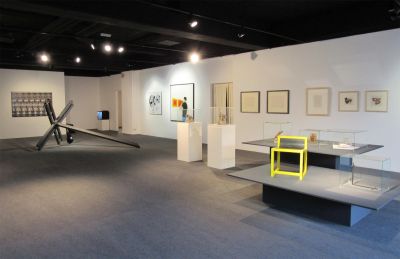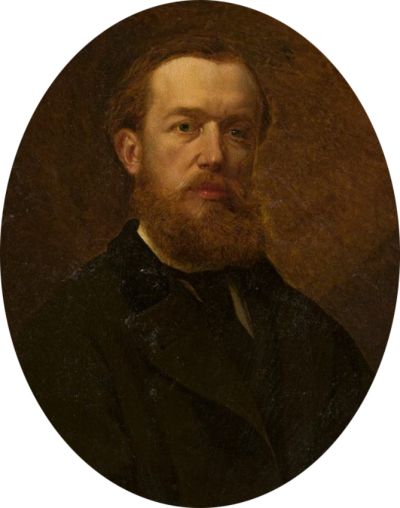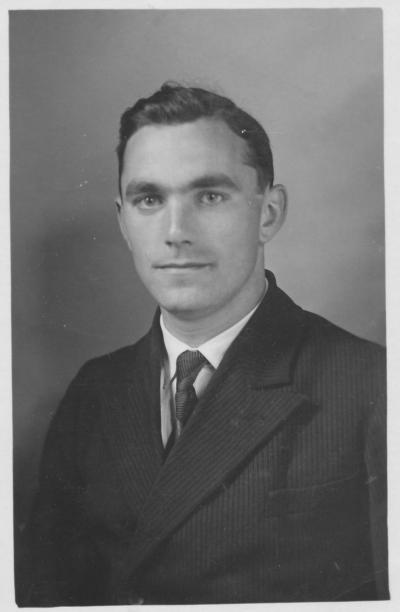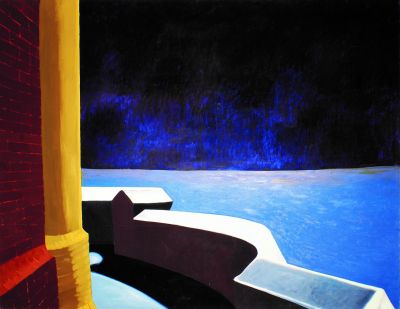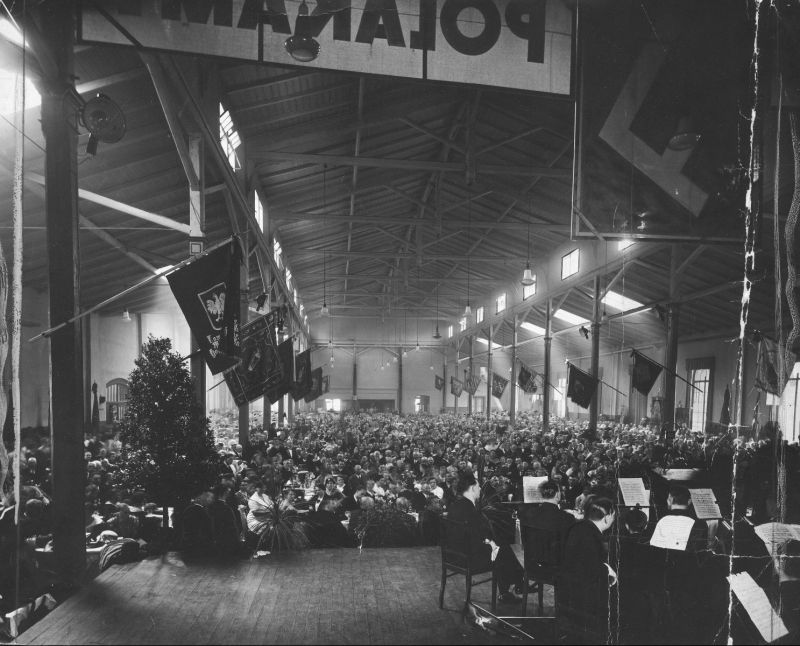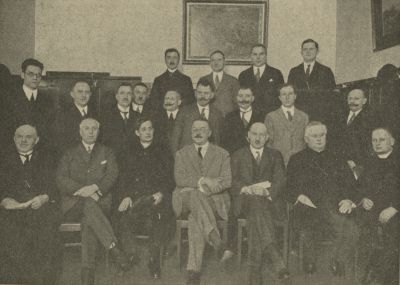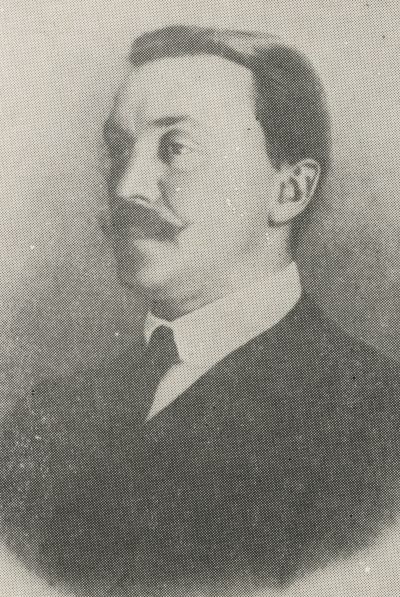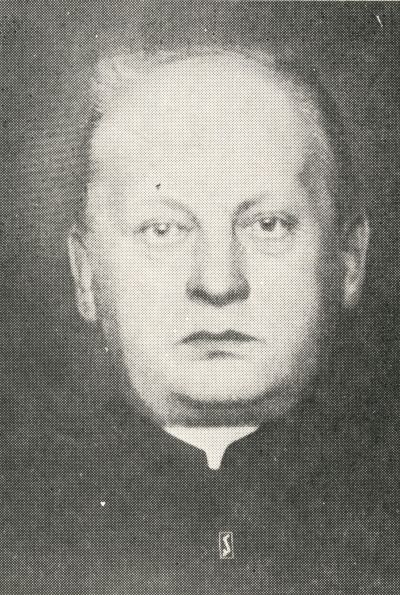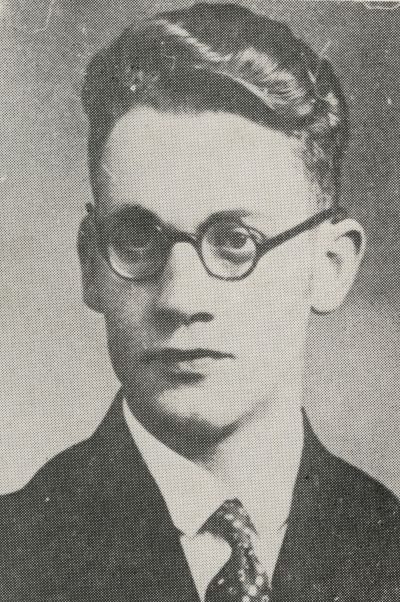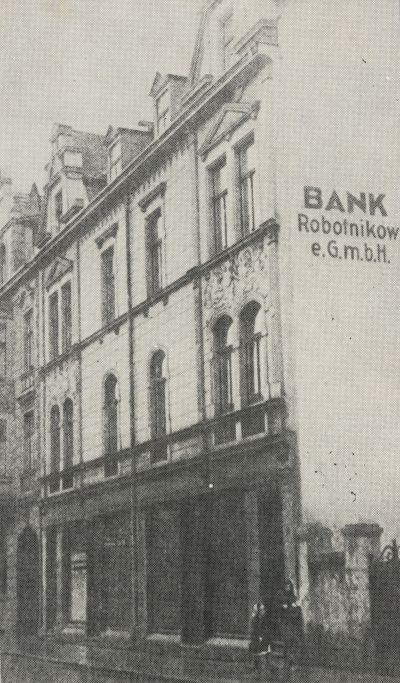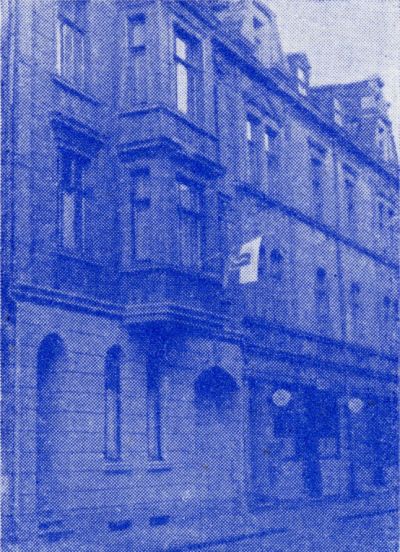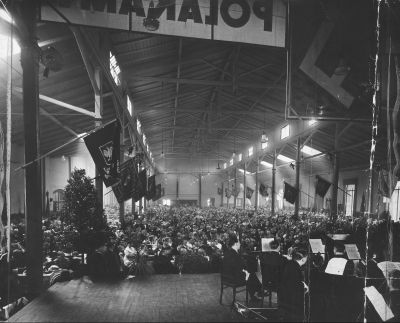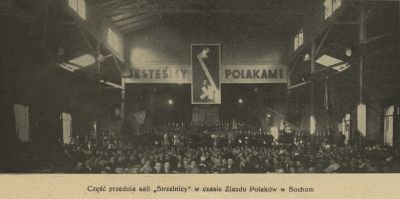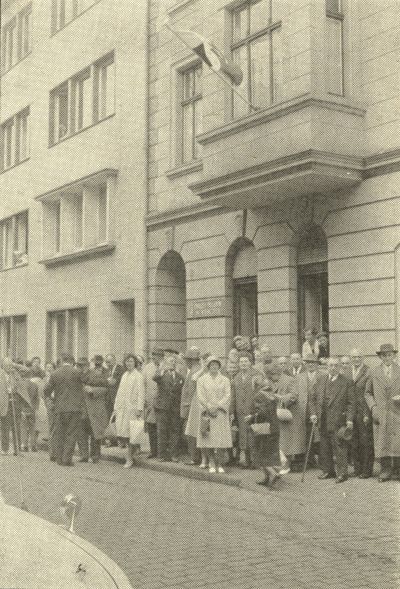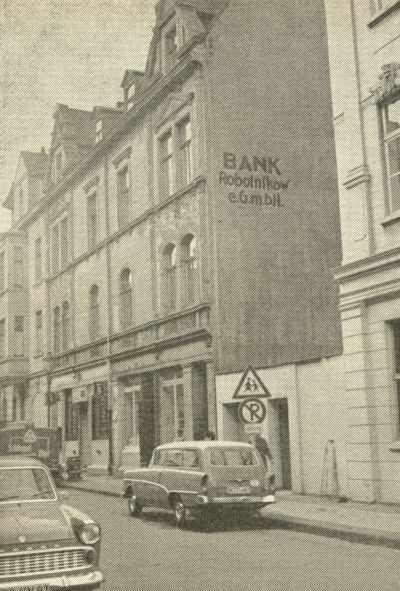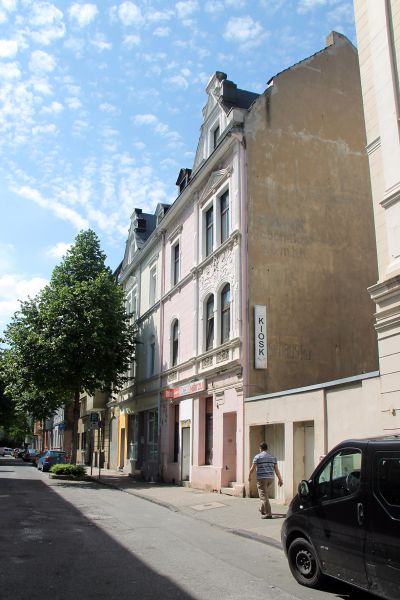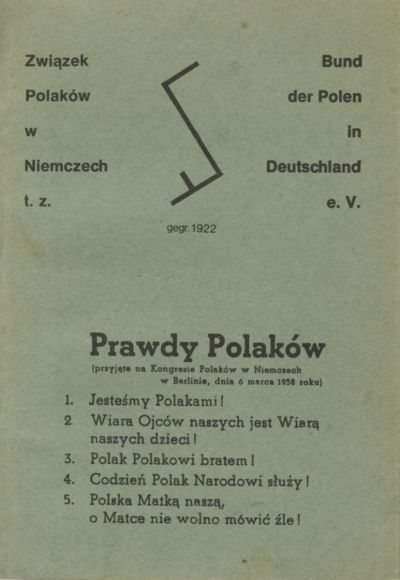The Union of Poles in Germany
Mediathek Sorted

Whilst the organisation was able to flourish in the first few years after its founding, once the National Socialists seized power in 1933, its activities were restricted. Although the non-aggression pact signed by Warsaw and Berlin in 1934 temporarily reduced their involvement in the organisation’s activities, the ‘détente’ phase did not last very long. The outbreak of the Second World War saw the organisation liquidised, its property seized, and hundreds of activists and leaders arrested and imprisoned in concentration camps. Other Poles were conscripted to the Wehrmacht and fought on the front lines against soldiers that had the same national background. Without doubt, in the years that followed, the members of the Union shared the same fate as millions of countrymen - Polish citizens who were subjected to severe repression after part of the Polish territory was annexed by the Third Reich. Deportations, murder and “Germanisation” were the order of the day. Although the organisation was quickly revived in all occupied zones after the Second World War, the Poles that remained in Germany no longer had the strength that would be able to play an important role. Some decided to emigrate to Poland which, as a result of the border changes, included areas that had previously been inhabited by a large number of members of the Union. However, this did not mean that the “Motherland” treated them as they had expected and had dreamt of. The creation of the two German states made the situation even more complicated, both in terms of German-Polish relations and in terms of the Poles’ position in their area. The actions taken by the Communists in Poland at the start of the 1950s led to the organisation in West Germany being split, whilst in the second German state, the GDR, it was disbanded altogether. Over the decades that followed, the Union, which went by the name Rodło, organised events that were typical for this type of organisation, from anniversaries to Polish language teaching, right through to balls and celebrations. In spite of attempts to increase the number of members, an ageing population and emigration meant that Rodło remained a small organisation. Even after German reunification, its activities have not changed. One of its main roles remains its efforts to have Poles in Germany recognised as a minority.
Without doubt, the situation of Poles in Germany after the First World War was fundamentally influenced by the creation of the Polish State. After not having had their own State for over one hundred years, they were now able to count on its support in an organisational, financial and political sense. The Poles were also able to benefit from the support of the Polish diplomatic representatives in Germany. This was all the more important because there was a significant German minority in the resurrected Poland which enjoyed considerable support from the German State.
The Poles in Germany quickly began to organise themselves. Of course, the Polish-German conflict around the western Polish border was a significant factor for the situation at the time The call for a single organisation to be created, which could amalgamate all the smaller associations and organisations spread throughout Germany, got louder and louder. Two important centres, in Berlin and Bochum, took initiatives in this area. In the beginning, they were unable to reach an agreement as each of them considered themselves to be the sole representative of the Poles. However, the dispute was able to be resolved quickly. The two centres decided to pool their strengths and, on 27 August 1922, founded the Union of Poles in Germany (in the following: UPG) with the involvement of organisations from East Prussia and Upper Silesia. The organisation, which had its headquarters in Berlin, was made up of 4 regional associations (Dzielnice), 5 from 1923 and 6 from 1938: Silesia I headquartered in Oppeln, Central Germany II (Berlin), Westphalia III (Bochum), Ermland IV and Masuria (Allenstein) and Flatow Land, Bomst and Kaschubia V. It should be added that regional association VI - Vienna - was created after the annexation of Austria. The first President of the organisation was the landowner Stanisław Sierakowski from East Prussia, with Jan Kaczmarek from Bochum becoming its General Secretary. Its publication was the monthly magazine “Polak w Niemczech” (The Pole in Germany), which was first published in 1925, and, in the 1930s, the emblem of the organisation became the Rodło symbol, the stylised course of the River Vistula.
Through its activities, the Union of Poles in Germany encompassed almost the entire Polish minority and quickly became an expression of their interests in the face of the German State. It should, however, be noted at this juncture that people were not rushing to join the new organisation. It is estimated that around 1.7 million people of Polish origin lived in Germany, some of which quickly assimilated in the 1920s. At the beginning of the 1930s, the UPG had around 40,000 members; District III Westphalia was the largest with 16,000 members. The activists there played an important role in the Union’s enterprises.









